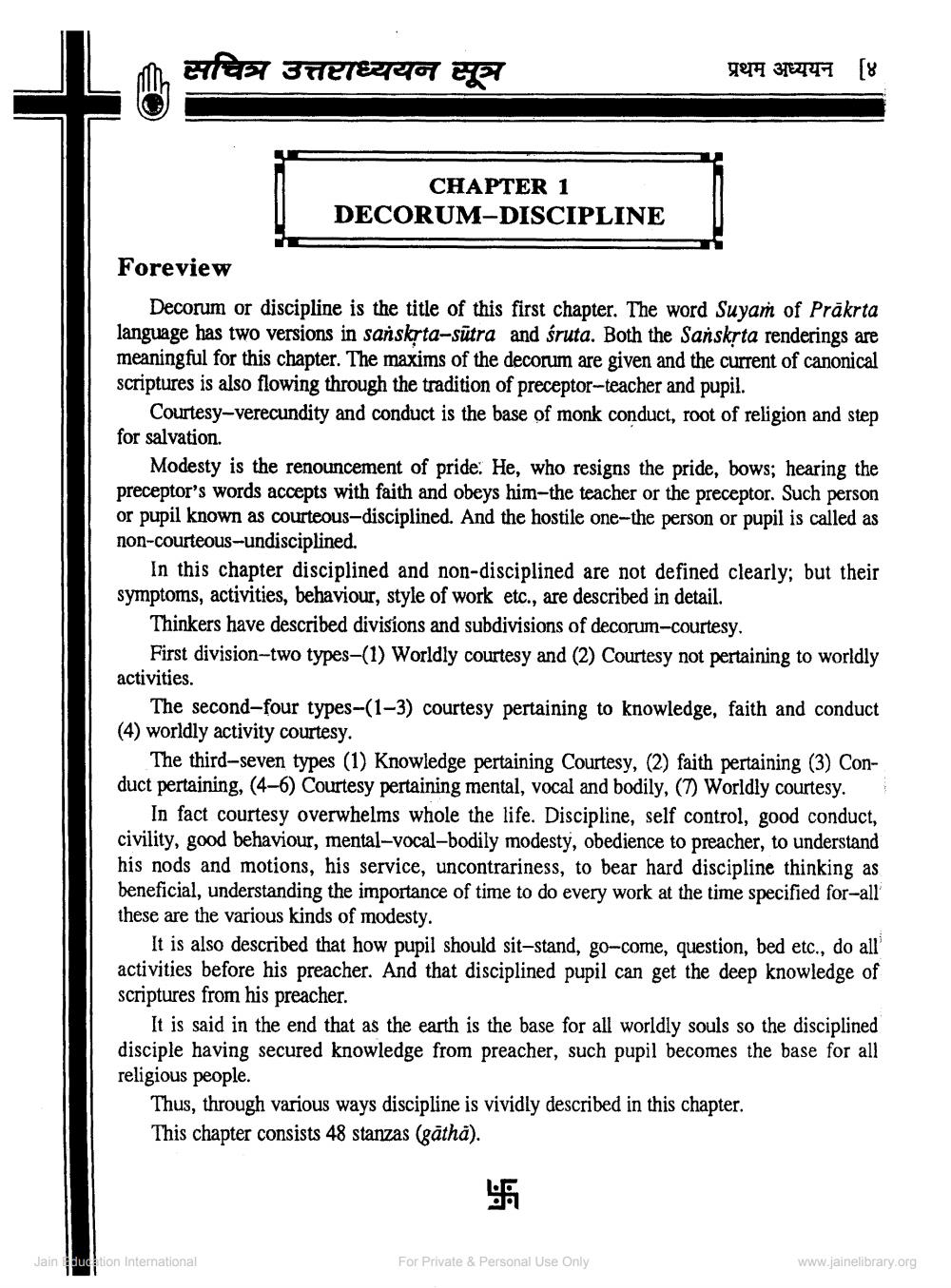________________
सचित्र उत्तराध्ययन सूत्र
CHAPTER 1 DECORUM-DISCIPLINE
Foreview
Decorum or discipline is the title of this first chapter. The word Suyam of Prakrta language has two versions in sanskṛta-sutra and śruta. Both the Sanskṛta renderings are meaningful for this chapter. The maxims of the decorum are given and the current of canonical scriptures is also flowing through the tradition of preceptor-teacher and pupil.
Courtesy-verecundity and conduct is the base of monk conduct, root of religion and step
for salvation.
Modesty is the renouncement of pride. He, who resigns the pride, bows; hearing the preceptor's words accepts with faith and obeys him-the teacher or the preceptor. Such person or pupil known as courteous-disciplined. And the hostile one--the person or pupil is called as non-courteous-undisciplined.
प्रथम अध्ययन
In this chapter disciplined and non-disciplined are not defined clearly; but their symptoms, activities, behaviour, style of work etc., are described in detail.
Thinkers have described divisions and subdivisions of decorum-courtesy.
First division-two types-(1) Worldly courtesy and (2) Courtesy not pertaining to worldly activities.
The second-four types-(1-3) courtesy pertaining to knowledge, faith and conduct (4) worldly activity courtesy.
The third-seven types (1) Knowledge pertaining Courtesy, (2) faith pertaining (3) Conduct pertaining, (4-6) Courtesy pertaining mental, vocal and bodily, (7) Worldly courtesy.
In fact courtesy overwhelms whole the life. Discipline, self control, good conduct, civility, good behaviour, mental-vocal-bodily modesty, obedience to preacher, to understand his nods and motions, his service, uncontrariness, to bear hard discipline thinking as beneficial, understanding the importance of time to do every work at the time specified for-all these are the various kinds of modesty.
It is also described that how pupil should sit-stand, go-come, question, bed etc., do all' activities before his preacher. And that disciplined pupil can get the deep knowledge of scriptures from his preacher.
It is said in the end that as the earth is the base for all worldly souls so the disciplined disciple having secured knowledge from preacher, such pupil becomes the base for all religious people.
Jain Education International
Thus, through various ways discipline is vividly described in this chapter.
This chapter consists 48 stanzas (gāthā).
卐
For Private & Personal Use Only
www.jainelibrary.org




